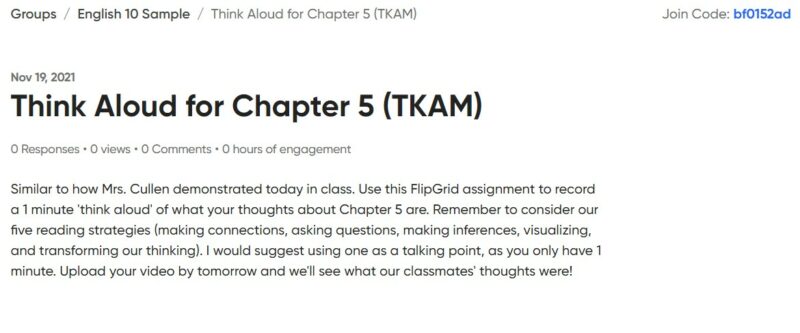Create a post to share your thoughts on your educational technology strengths, the challenges you anticipate facing, and the resources you have identified that will help you (and others) to face those challenges. Share your post on your personal course portfolio.
This week, I’ve been asked to reflect on educational technology strengths, challenges, and useful resources. To make this post more accessible, I’ve compiled my thoughts into two brief paragraphs and offered a list of online resources I love. Please feel welcome to add any other suggestions you love in the comments!
Educational Technology Strengths:
Two of the biggest strengths of educational technology, in my opinion, is accessibility and engagement. The internet offers a wealth of resources and tools that can make in-classroom learning (the format to which I am most familiar teaching) more accessible for students by offering various outlets in various learning styles for students. Perhaps compounding on that note, by providing a more diverse selection of learning methods, tools, and styles, we can promote more students engagement in the learning process in creative ways.
Challenges I Anticipate:
Three areas I have observe (and predict I will encounter in the future) that I feel will be challenging are helping students navigate through the expanse of unreliable sources of information, encouraging students to “do the work” to find the best sources (not just the easiest ones), and managing the additional time it requires in teaching prep to gather, understand, and utilize new educational technology in my own classroom.
Tools I’ve Used That I Love:
Here are just a few tools that I’ve used in the past that I’ve used:
- Google Classroom (we use the Google Platform in our district and have found it useful in creating a common classroom space. I mainly use it as a place to post up daily plans, homework, and resources. I like how you can link Google Forms for quiz formative checks and Google Docs for homework assignments that never get lost)
- Google Docs (A quick side note that I love about Google Docs is the history feature. If you assign work for students using this platform, it allows you to look back through the document’s history to see students’ progress. It’s an easy way to tell who plagiarized their work or who finished it last minute.)
- Google Forms (I prefer this platform to Survey Monkey because you’re not limited to how many people can take your survey. You also have to option to neatly export your data to Google Sheets)
- WordPress (If you don’t have a preferred platform for online classrooms, I find WordPress a good option too. I’ve used it to post daily plans and classroom resources)
- Pixton Comic & Storyboard for Educators
- Powtoon: Video Maker
- Kahoot! (Great for making competitive quizzes for your classroom, kids can use classroom laptops or their phones to play)
- ESL-Bits (Online platform full of free audiobooks. I really like how each book is broken down by chapter so it’s easy to post the link to the chapter for kids to read, and that students can adjust the reading speed to the level they are comfortable with)
- CBC Curio (a huge collection of Canadian content)
- NYU Bilingual Glossaries and Cognates (I found this tool for my ELL students who were having a hard time learning all the terms in their science, social studies, and English classes)
- Native Land (I love using this tool when talking about unceded territories with my students. It provides a world atlas outlining all the traditional territories of the indigenous peoples of the area.)
Image credit: https://pixabay.com/photos/computer-pc-workplace-home-office-1185626/






1 Comment
Add Yours →Hi Anna,
Thank you including CBC Curio in your post! I have not run across it before and think it will be helpful in my practice.
-Gena